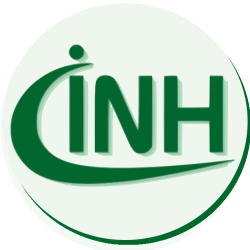
After six years of educational work and public discourse on the subject of homeopathy, we see reason to concretise our demands to decision-makers in politics and the health system. In these six years, the knowledge has become widespread that homeopathy is a doctrine from pre-scientific times, whose errors have long since been proven and whose supposed successes have long since been adequately explained in terms other than the effect of an esoteric “spiritual medicinal power”.
It has become clear to many people that the role that homeopathy continues to play as a “special therapeutic direction” in German pharmaceutical and social legislation cannot be justified in an effective, sustainable and future-oriented solidarity-based health insurance system. We therefore supplement and concretise our “Freiburg Declaration on Homeopathy” as follows:
In over 200 years, homeopathy has failed to prove that it has any specific medical relevance. Homeopathy is not medicine and can therefore have no place in the public health system.
Our specific demands are therefore:
- No more exceptions in the Medicines Act that allow homeopathics and other methods to gain medicinal status without scientifically sound evidence of efficacy, thus creating the false impression of effective medicine in the general public.
Homeopathy is based on fundamental assumptions that are incompatible with established knowledge in physics, chemistry and biology, and thus with the scientific worldview that is proven every day. Consequently, high-quality clinical studies have never been able to prove a specific medicinal benefit. Scientific and governmental institutions worldwide answer the question whether homeopathy is medicine with a clear “no”.
- Binding guarantee of advice in pharmacies according to the state of science and abolition of the misleading pharmacy compulsory requirement for homeopathic medicines.
The compulsory pharmacy requirement would at least lead to the expectation that it would guarantee appropriate and state-of-the-art advice on homeopathy in pharmacies. Nothing else is required by the professional regulations for pharmacists. However, there is much to suggest that this is not the case to a considerable extent. This alone is enough to call into question the pharmacy obligation. Professional associations, even chambers of pharmacists, do not at all contribute to ensuring that counselling on a scientific level is consistently guaranteed.
- No more false signals through the possibility for statutory health insurance funds to reimburse homeopathy, whether as a standard or as a statutory benefit for homeopathic medicines or through special agreements for therapy services.
Statutory health insurance is a solidarity system which, according to the wording of the law, serves the purpose of ensuring sufficient, appropriate and economic health care that does not exceed what is necessary. Means and methods that lack proof of effectiveness obviously cannot fulfil these requirements. The legal rules that nevertheless allow this are self-contradictory in this respect.
We consider it absurd to justify the practice of many health insurance funds as a marketing aspect.
- Intensification of public health education in general and especially on unscientific means and methods as part of an overall better consumer protection in the field of medicine and health.
The health care system must not itself become a carrier of misinformation and disinformation and thereby counteract its own health policy goal of strengthening general health literacy. Instead, health education and consumer protection in the health care system must be strengthened in the long term.
Germany is the only country in Europe that has so far not drawn any consequences from the clear recommendations of the Advisory Council of the Association of European Scientific Communities on homeopathy (EASAC 2017). EASAC unequivocally states the placebo character of homeopathy and the lack of specific medicinal efficacy, and sees access to health systems as legitimised solely by scientifically proven efficacy. It also points to the considerable dangers associated with the promotion of homeopathy: Loss of confidence in scientific knowledge in general and in science-based medicine in particular.
Homeopathy is legally legitimised, esoterically based pseudo-medicine. Why – in view of the clear scientific evidence and the indisputable damage potential of promotion through medicinal product status, compulsory pharmacy and health insurance reimbursement – there has still not been a fundamental revision of the legal basis is beyond our understanding. We call on all those responsible to address this without further delay.
Our website “globukalypse.org” (in German) summarises the demands of the INH and the reasons for them concisely and clearly.
Picture: Gerd Altmann on Pixabay

